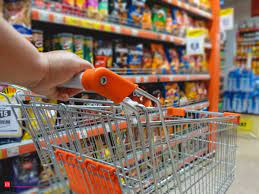NEW DELHI, Dec 22: With a revival in demand and consumption, FMCG companies are looking forward to 2022 with positivity and hopes of sustaining a healthy growth trend across both rural and urban markets while gearing up to cater to the ever-increasing digitally active consumers and tackle the challenge of higher commodity prices.
Health and wellness and convenience are going to remain key trends and FMCG companies are strengthening their core brands, driving premiumisation across their portfolios with targeted innovations as consumers are gravitating towards trusted brands looking for quality, purity and hygiene, in continuation of the trend that started since the pandemic last year.
FMCG makers are accelerating digitalisation and are investing in building capability in e-commerce and Direct-to-Consumer channels, identifying it as a key vector of their growth as the threat of a possible third wave is still not away.
“Going forward, in our view, consumers will continue to prefer brands they can trust provided the brand is able to offer value and tangible benefits. Health and wellness and convenience are key trends that are likely to dictate product and brand choices. Digital adoption has been growing and we are positioning ourselves to cater to all these emerging trends,” Tata Consumer Products MD & CEO Sunil D’Souza told PTI.
The FMCG industry is also facing an unprecedented level of inflationary pressure due to a rise in the cost of key materials inputs such as palm oil and packaging material, and transport cost and it may also go for another round of price hike in the first quarter of 2022.
Inflation in the recent quarters has been at over 9 per cent, Dabur India CEO Mohit Malhotra said. It had forced the company, recently, to go for a price hike despite several cost-saving initiatives to mitigate part of this impact.
He also did not rule out another round of price hikes, if some correction does not happen on this front.
“We are watching the situation now and if the inflation continues unabated, we may look at another round of price increases in the early part of 2022. While inflation remains a big concern going forward, our intent is to mitigate this impact through calibrated price increases and cost-saving initiatives,” he said.
Raising concerns, Britannia Industries Managing Director Varun Berry said, “We saw unprecedented inflation this year. Inflation in the current year is higher than the past six years combined, led by palm oil prices, and industrial fuel and packaging material prices”.
“While we have been able to partially mitigate the impact through strategic forward covers and accelerated cost efficiency programs, we have also initiated necessary price increases across the portfolio, all of which will address the cost-push and normalise profitability,” he said.
FMCG companies are also expecting a revival in demand and consumption, especially from out of home, a channel that was severely impacted after the pandemic.
“Overall, consumer demand and consumption revival are gaining traction in both urban and rural areas,” PepsiCo India President Ahmed ElSheikh said, adding “looking ahead, we are optimistic about the opportunities in 2022”.
Food and beverages major PepsiCo will continue to invest in India’s growth story, both in terms of capacity expansion and market penetration, he said.
“We also began to see a revival of out-of-home consumption in the packaged food space,” Berry said.
Marico MD and CEO Saugata Gupta said on the macro front, he expects continued overall economic recovery which should help stabilise consumption.
“Normal monsoons and continued government stimulus should benefit a large section of the population residing in rural India over the near to medium term. We believe that we are certainly moving in the right direction and will remain focused on our strategic priorities in order to be able to build a sustained, broad-based and profitable growth trajectory over the medium term,” he said.
Emami Director Mohan Goenka said, “We expect the consumer sentiment to sustain a healthy trend across both rural and urban. We are hopeful for a positive outlook in FY22 and is also prepared to leverage every opportunity with significant product innovations in healthcare and personal care categories”.
The FMCG makers would continue their rural push, covering the far-flung areas with value-based offerings. Companies such as Dabur, Emami and Nestle have continued their expansion in rural markets, which had grown faster than the urban after recovering quickly from the pandemic.
“We now reach around 83,500 villages. At an overall level, we directly reach 1.3 million outlets today, which would grow to 1.4 million by the end of this year and over 1.5 million outlets next year,” Malhotra said.
There are some other challenges for the industry as the threat of Omicron is looming. However, makers are confident of handling the challenges as they have made their supply lines and distribution channels efficient to handle any such kind of eventualities.
“As uncertainties and challenges will continue in the future, we are armed with our learnings from the past and are committed to serving changing consumer demand through our strong brands and great talents,” an HUL spokesperson said.
In the FMCG segment, with evolving buying habits, e-commerce as a channel has grown significantly and makers expect this trend to continue in 2022.
“Consumers are going to be more digitally active than they were earlier and food companies with a strong digital-first capability are the ones that are going to hold the consumer’s interest for a long time,” a Nestlé India spokesperson said.
Companies such as ITC have accelerated digitalisation as a key vector of growth for the future, ITC Executive Director B Sumant said.
In the food segment, there has been a clear jump in-home cooking and searches related to food, from both an innovation as well as a nutrition standpoint in the past year. (PTI)


